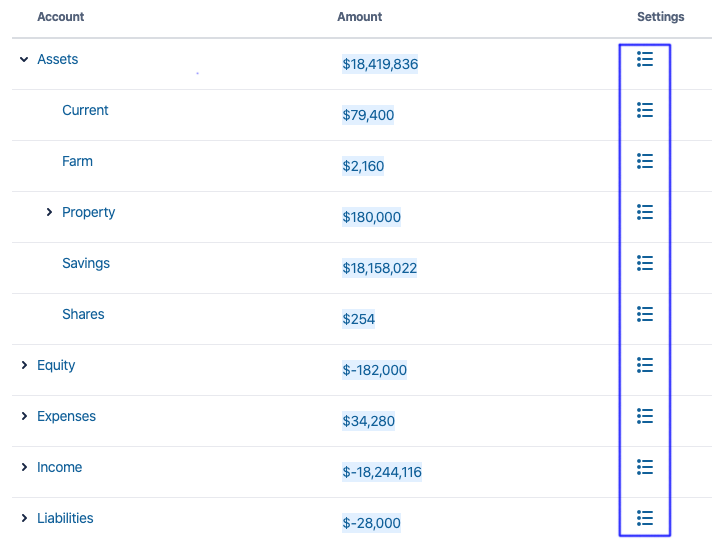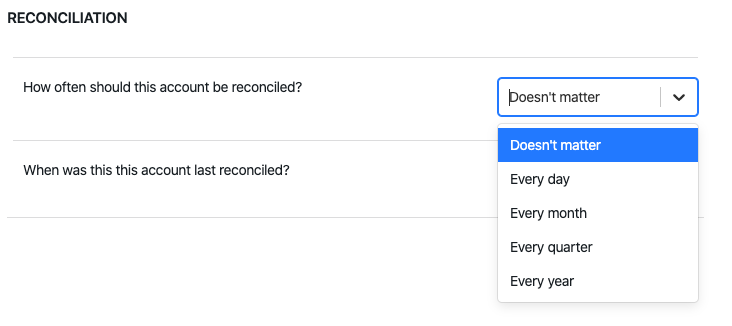Tracking Reconciliation
At the most fundamental level, reconciliation is the accounting term to describe the process of ensuring that two sets of records are in agreement.
From a personal perspective, it is important to ensure that records that you keep in your journal are reconciled (in agreement) with the records kept by the institutions that you bank with (current account, credit card, mortgages, etc.).
Reconciliation is important because it ensures that all data is correct so that we are confident with the conclusions and information that Prudent analytics provide. Reconciliation also helps uncover any discrepancies that may arise from errors that may had occured your financial institution's record, however unlikely that may be.
Prudent has a slew of features that help you keep track of reconciliation in the most convenient way possible.
Account attributes
Accounts in Prudent includes the reconciliation.frequency and reconciliation.last attributes to keep track of how often an account needs to be reconciled and when it was last reconciled respectively.
You can update these attributes by clicking on the Settings button of the corresponding account you desire in the account tree.

For frequency, you can choose from the following period:

It is important to select a good frequency of reconciliation. This attribute is used by extensions (see below) that shows your the state of your account in terms of reconciliation, and thus how up-to-date your accounts are. You can also manually indicate that an account is reconciled by clicking on the Now button:

Import extensions
While importing transactions with import extensions, you will be presented with the transactions that are imported:

Import extensions should endeavour to infer the two related accounts for each transaction (best effort) or you can choose the right one too.
You can take this opportunity to reconcile these transactions with a physical statement or at least vet through the transactions quickly as a minimal form of reconciliation (if its only a simple account). You can of course, just confirm as well if you're confident with the record.
In any case, when the import is Confirmed and the transactions saved, Prudent automatically storerecords the date of the latest transaction amongst the transactions to provide an indication of the latest date in which transactions in the account is reconciled (i.e. imported from account sources). This reconciliation date is stored in the reconciliation.last attribute of the account.
Reconciliation extension
The reconciliation.last attribute that you update (or automatically updated by Prudent upon an import) is used by the Reconciliation extension to show you analytics of the state of reconciliation of all your accounts based on how frequent these accounts need to be reconciled. Take a look at the Reconciliation extension for more info.
